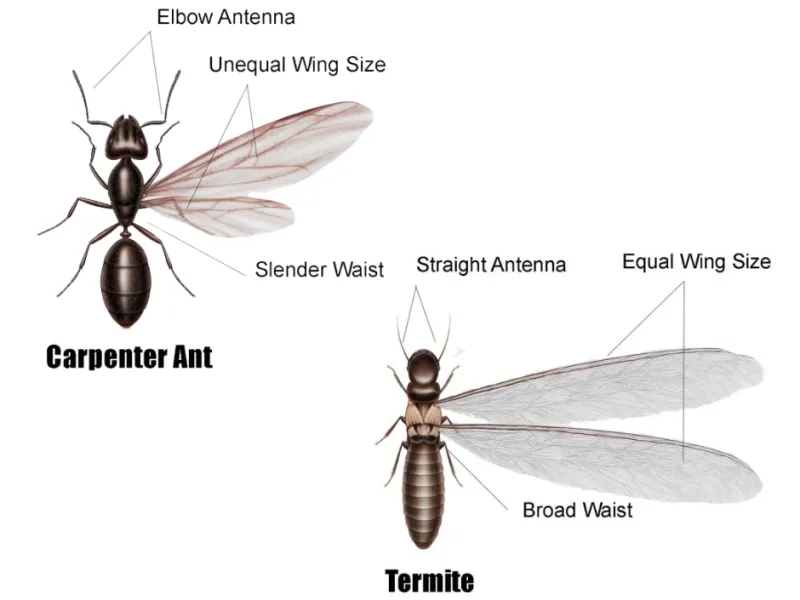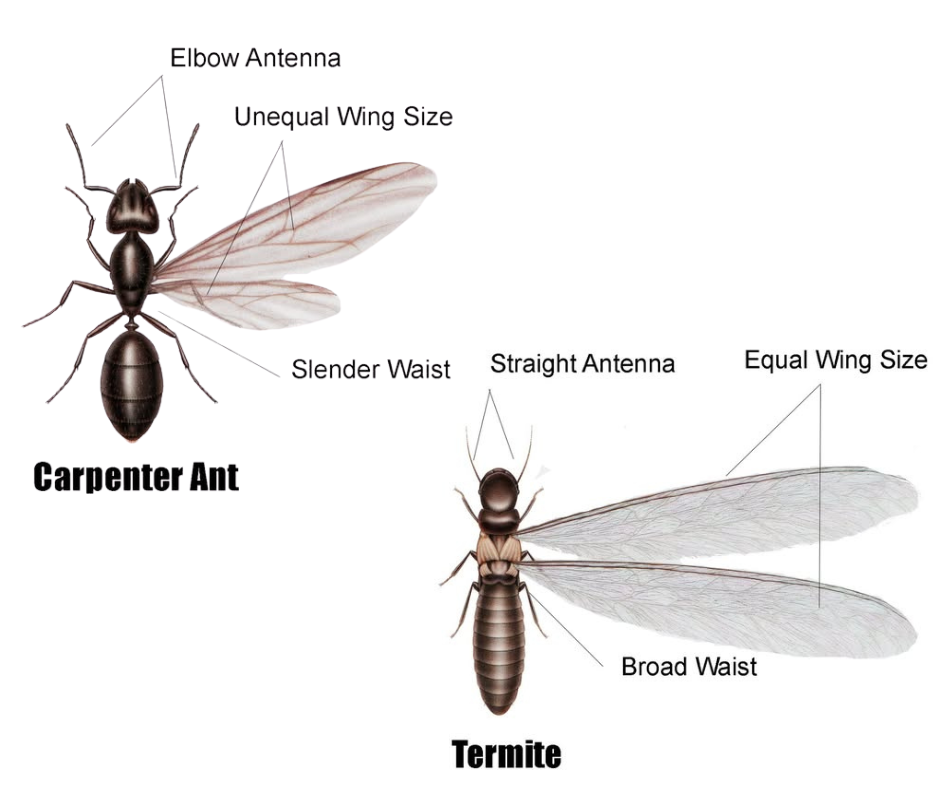Flying Ant Season

Flying Ant Season in the DMV Area
Why August Brings These Winged Visitors — and What You Can Do About Them
If you've noticed swarms of tiny flying insects buzzing around your porch lights or windows this August, you're not imagining things. It's flying ant season in the DMV — that's D.C., Maryland, and Virginia — and these winged ants are out in full force.
Every summer, usually in August, mature ants leave their colonies for a once-a-year flight to mate and start new nests. While they may look like termites, these fliers are generally reproductive ants participating in what's known as a "nuptial flight."
What Exactly Are Flying Ants?
Flying ants are just the reproductive versions of regular ants — male and female — that temporarily grow wings to swarm, mate, and establish new colonies. They typically emerge all at once when conditions are warm and humid, usually after rain, which is why August is prime time here in the DMV.
How To Tell The Difference Between Flying Ants And Termites
Don't panic just yet. Flying ants can resemble termites, but there are key differences. While termites can seriously damage your home, flying ants are more of a nuisance. If you're unsure, it's always worth getting a second opinion.
Are Flying Ants Dangerous?
Not directly. Flying ants themselves won't hurt you, but spotting them can mean there's a larger colony nearby — maybe even in your walls or yard. Certain types, like carpenter ants, can dig into wood to make their nests, leading to long-term issues.
Why Are There So Many Flying Ants Near Me?
The humid and rainy summers in D.C., Maryland, and Virginia create perfect conditions for ant reproduction. With lots of moisture, mulch, and tree cover in our neighborhoods, it's no surprise that ants love it here.
Five Ways to Keep Flying Ants Out of Your Home
Seal Up Cracks
Use caulk and weather-stripping to block entry points around windows, doors, and your foundation.Keep Food Sealed
Store pantry items in airtight containers and clean up crumbs right away.Trim Back Plants
Vines and branches can act like highways for ants trying to reach your home.Control Moisture
Fix leaky pipes and use dehumidifiers in damp spaces like basements.Dim the Lights
Flying ants are attracted to light, so turn off outdoor fixtures when you can during evening hours.
How To Get Rid Of Ants
If the ants are becoming too much, or you just want to make sure they stay away, PestNow is here to help. Our team knows the ins and outs of pest problems in the DMV area and we offer expert pest control solutions to keep your home or business protected.
Contact us today for a free inspection — and enjoy the rest of your summer without uninvited guests.



